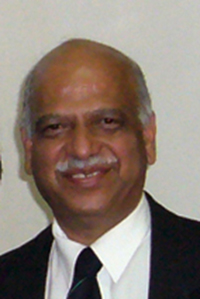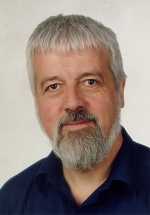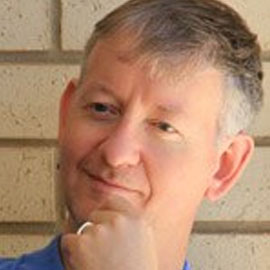Related Research Articles

Computational chemistry is a branch of chemistry that uses computer simulations to assist in solving chemical problems. It uses methods of theoretical chemistry incorporated into computer programs to calculate the structures and properties of molecules, groups of molecules, and solids. The importance of this subject stems from the fact that, with the exception of some relatively recent findings related to the hydrogen molecular ion, achieving an accurate quantum mechanical depiction of chemical systems analytically, or in a closed form, is not feasible. The complexity inherent in the many-body problem exacerbates the challenge of providing detailed descriptions of quantum mechanical systems. While computational results normally complement information obtained by chemical experiments, it can occasionally predict unobserved chemical phenomena.
Quantum chemistry, also called molecular quantum mechanics, is a branch of physical chemistry focused on the application of quantum mechanics to chemical systems, particularly towards the quantum-mechanical calculation of electronic contributions to physical and chemical properties of molecules, materials, and solutions at the atomic level. These calculations include systematically applied approximations intended to make calculations computationally feasible while still capturing as much information about important contributions to the computed wave functions as well as to observable properties such as structures, spectra, and thermodynamic properties. Quantum chemistry is also concerned with the computation of quantum effects on molecular dynamics and chemical kinetics.

Robert Ghormley Parr was an American theoretical chemist who was a professor of chemistry at the University of North Carolina at Chapel Hill.
Amsterdam Density Functional (ADF) is a program for first-principles electronic structure calculations that makes use of density functional theory (DFT). ADF was first developed in the early seventies by the group of E. J. Baerends from the Vrije Universiteit in Amsterdam, and by the group of T. Ziegler from the University of Calgary. Nowadays many other academic groups are contributing to the software. Software for Chemistry & Materials (SCM), formerly known as Scientific Computing & Modelling is a spin-off company from the Baerends group. SCM has been coordinating the development and distribution of ADF since 1995. Together with the rise in popularity of DFT in the nineties, ADF has become a popular computational chemistry software package used in the industrial and academic research. ADF excels in spectroscopy, transition metals, and heavy elements problems. A periodic structure counterpart of ADF named BAND is available to study bulk crystals, polymers, and surfaces. The Amsterdam Modeling Suite has expanded beyond DFT since 2010, with the semi-empirical MOPAC code, the Quantum_ESPRESSO plane wave code, a density-functional based tight binding (DFTB) module, a reactive force field module ReaxFF, and an implementation of Klamt's COSMO-RS method, which also includes COSMO-SAC, UNIFAC, and QSPR.
Werner Kutzelnigg was a prominent Austrian-born theoretical chemist and professor in the Chemistry Faculty, Ruhr-Universität Bochum, Germany. Kutzelnigg was born in Vienna. His most significant contributions were in the following fields: relativistic quantum chemistry, coupled cluster methods, theoretical calculation of NMR chemical shifts, explicitly correlated wavefunctions. He was a member of the International Academy of Quantum Molecular Science.
Rodney Joseph Bartlett is Graduate Research Professor of Chemistry and Physics, University of Florida, Gainesville, USA.

Henry Frederick "Fritz" Schaefer III is a computational and theoretical chemist. He is one of the most highly cited chemists in the world, with a Thomson Reuters H-Index of 121 as of 2020. He is the Graham Perdue Professor of Chemistry and Director of the Center for Computational Chemistry at the University of Georgia. Before becoming professor at Georgia he was professor at University of California, Berkeley and in 2004, he became Professor of Chemistry Emeritus, at UC Berkeley

Kendall Newcomb Houk is a Distinguished Research Professor in Organic Chemistry at the University of California, Los Angeles. His research group studies organic, organometallic, and biological reactions using the tools of computational chemistry. This work involves quantum mechanical calculations, often with density functional theory, and molecular dynamics, either quantum dynamics for small systems or force fields such as AMBER, for solution and protein simulations.

Sir David Charles Clary, FRS is a British theoretical chemist. He was president of Magdalen College, Oxford, from 2005 to 2020. He was the first chief scientific adviser to the Foreign and Commonwealth Office from 2009 to 2013. He is a Professor of Chemistry at the University of Oxford.

Włodzimierz Kołos was a Polish chemist and physicist who was one of the founders of modern quantum chemistry, and pioneered accurate calculations on the electronic structure of molecules.

Debashis Mukherjee is a theoretical chemist, well known for his research in the fields of molecular many body theory, theoretical spectroscopy, finite temperature non-perturbative many body theories. Mukherjee has been the first to develop and implement a class of many-body methods for electronic structure which are now standard works in the field. These methods, collectively called multireference coupled cluster formalisms, are versatile and powerful methods for predicting with quantitative accuracy the energetics and cross-sections of a vast range of molecular excitations and ionization. A long-standing problem of guaranteeing proper scaling of energy for many electron wave-functions of arbitrary complexity has also been first resolved by him. He has also been the first to develop a rigorously size-extensive state-specific multi-reference coupled cluster formalism, and its perturbative counterpart which is getting increasingly recognized as a very promising methodological advance.
Axel Dieter Becke is a physical chemist and Professor of Chemistry at Dalhousie University, Canada. He is a leading researcher in the application of density functional theory (DFT) to molecules.

Shridhar Ramachandra Gadre is an Indian scientist working in computational quantum and theoretical chemistry.

Walter Thiel was a German theoretical chemist. He was the president of the World Association of Theoretical and Computational Chemists (WATOC) from 2011.
Sourav Pal (1955-) is an Indian theoretical chemist and former professor of chemistry at IIT Bombay, and former director of the Indian Institute of Science Education and Research, Kolkata. He was a director of the CSIR-National Chemical Laboratory in Pune and an adjunct professor at the Indian Institute of Science Education and Research, Pune.
Frank Neese is a German theoretical chemist at the Max Planck Institute for Coal Research. He is the author of more than 440 scientific articles in journals of Chemistry, Biochemistry and Physics. His work focuses on the theory of magnetic spectroscopies and their experimental and theoretical application, local pair natural orbital correlation theories, spectroscopy oriented configuration interaction, electronic and geometric structure and reactivity of transition metal complexes and metalloenzymes. He is lead author of the ORCA quantum chemistry computer program. His methods have been applied to a range of problems in coordination chemistry, homogeneous catalysis, and bioinorganic chemistry.

Donald Gene Truhlar is an American scientist working in theoretical and computational chemistry and chemical physics with special emphases on quantum mechanics and chemical dynamics.

Bidyendu Mohan Deb is an Indian theoretical chemist, chemical physicist and a professor at the Indian Institute of Science Education and Research, Kolkata (IISER). he is known for his studies in theoretical chemistry and chemical physics. He is an elected fellow of the International Union of Pure and Applied Chemistry, The World Academy of Sciences, Indian National Science Academy and the Indian Academy of Sciences. The Council of Scientific and Industrial Research, the apex agency of the Government of India for scientific research, awarded him the Shanti Swarup Bhatnagar Prize for Science and Technology, one of the highest Indian science awards, in 1981, for his contributions to chemical sciences.

Peter Malcolm Wallace Gill is a New Zealand theoretical and computational chemist known for his contribution to density functional theory (DFT). He is an early and main contributor to the computational chemistry software Q-Chem and was the president of the company during 1998–2013. He is especially known for developing the PRISM algorithm for evaluating two-electron integrals and linear-scaling DFT, as well as self-consistent field method for excited state electronic structure.
References
- 1 2 3 4 "Evert-Jan Baerends". International Academy of Quantum Molecular Science. Retrieved 19 November 2015.
- 1 2 "The SCM Board of Directors". Scientific Computing & Modeling. Retrieved 19 November 2015.
- 1 2 "Prof. Evert Jan Baerends, Doctor Honoris Causa". Institut de Química Computacional i Catàlisi. 16 May 2019. Archived from the original on 9 October 2020.
- ↑ "Jan Baerends". Royal Netherlands Academy of Arts and Sciences. Archived from the original on 20 November 2015. Retrieved 19 November 2015.
- ↑ "Schrödinger Medal". World Association of Theoretical and Computational Chemists. Retrieved 19 November 2015.